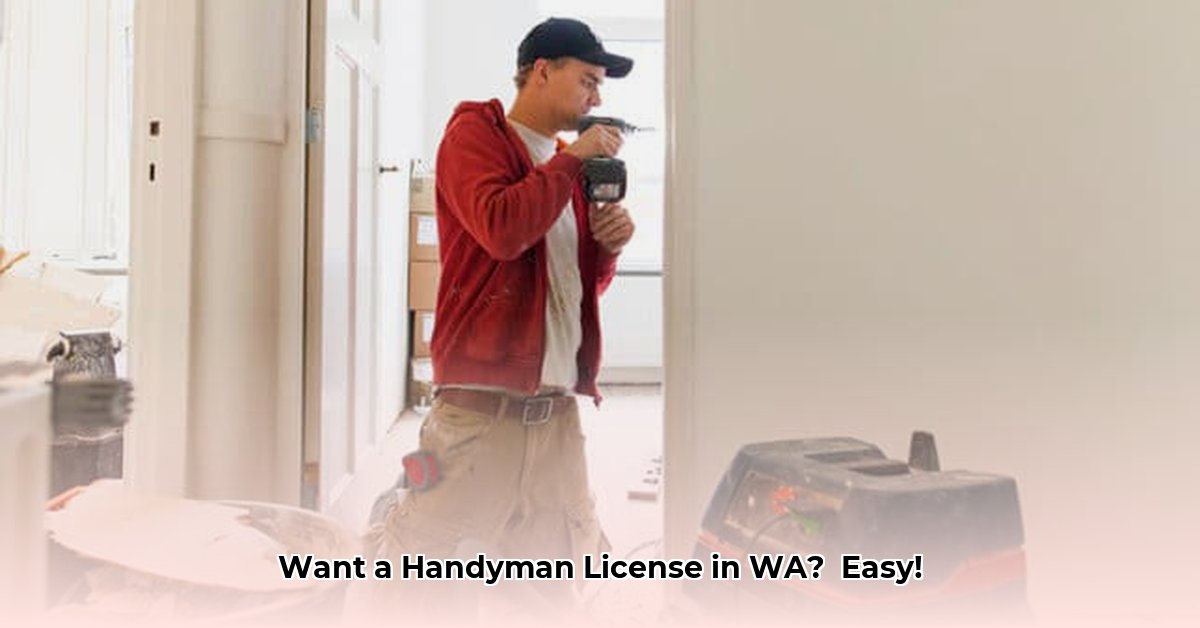
Thinking about starting a handyman business in Washington State? This guide provides a straightforward path to legally and successfully operating your business. While you can perform jobs under $500 without registering, significantly limiting your earning potential, registration unlocks greater opportunities and protects you from costly penalties.
Understanding Washington State Contractor Types
Washington State differentiates between "registered" and "licensed" contractors. Registered contractors (which encompasses handymen) can perform a wide array of general home repairs and improvements. Licensed contractors, however, possess specialized licenses for specific trades like plumbing or electrical work, requiring additional qualifications and examinations. Registration offers significant advantages over operating unregistered, providing more flexibility and legal protection.
Step-by-Step Handyman Registration in WA
Follow these steps to register your handyman business:
Step 1: Choosing Your Business Structure
Select a business structure that aligns with your needs and risk tolerance. Common options include sole proprietorship (simplest, but personal liability) and LLC (Limited Liability Company, offering better asset protection). Consulting a business advisor can prove invaluable in this decision. This impacts taxes and liability.
Step 2: Securing General Liability Insurance
General liability insurance is essential. It protects you financially if someone is injured on your job site or if property is damaged. The cost varies; obtain quotes from multiple insurers to compare. This is crucial for responsible business operation.
Step 3: Obtaining a Surety Bond
A surety bond protects your clients if you fail to complete work as agreed or if problems arise. The bond amount is determined by the state and serves as financial security for clients. This is a standard requirement for registered contractors.
Step 4: Completing the Online Application
Visit the Washington State Department of Labor & Industries (L&I) website (https://lni.wa.gov/) to complete the online application. Ensure accuracy; errors can delay the process. Double-check all your entries before submission.
Step 5: Paying the Application Fee
Check the L&I website for the current application fee, as fees are subject to change. Prompt payment is essential to expedite processing.
Post-Registration Obligations: Ongoing Compliance
Registration is not a one-time task. Continuous compliance is crucial for continued operation.
Advertising Regulations: Your registration number must be prominently displayed on all business materials (website, vehicles, marketing materials). Failing to do so carries penalties.
Bond Renewal: Your surety bond requires periodic renewal. Set reminders to ensure timely renewal and avoid lapses, which can result in significant issues.
Staying Informed: Regularly check the L&I website for updates to regulations and announcements. Staying informed ensures compliance and minimizes the risk of penalties.
Common Challenges and Risk Mitigation
Operating unregistered beyond the $500 threshold or performing work requiring a specialized license exposes you to significant penalties. These include substantial fines and possible legal action.
Unregistered Work Over $500: Immediate registration is the best mitigation strategy. This is a common and easily avoidable problem.
Improper Advertising: Display your registration number clearly on all materials to avoid penalties for non-compliance.
Insufficient Insurance: Adequate liability insurance is crucial to protect your business from financial losses resulting from accidents or damage.
Resources and Further Information
The Washington State Department of Labor & Industries (https://lni.wa.gov/) is your primary resource for up-to-date information and regulations. Consult with a business advisor for personalized guidance related to your business's structure, tax implications, and compliance obligations. Registering your business is your first step towards building a successful and legal handyman operation in Washington State.